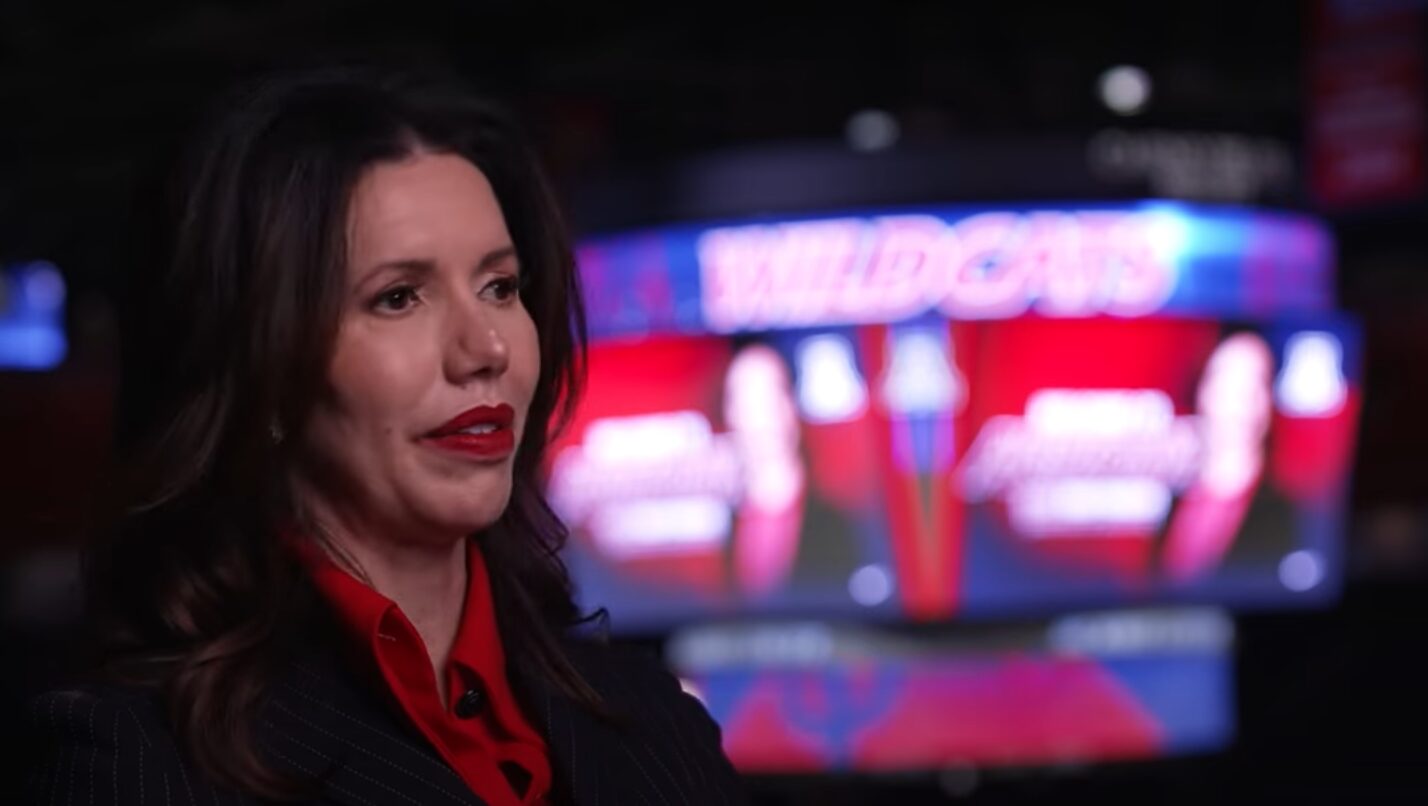Desiree Reed-Francois spent her 100th day as Missouri’s athletic director basking in an overtime victory over Florida that clinched a bowl berth for her Tigers. It was Nov. 23, 2021. College sports was moving on from COVID, getting acquainted with NIL and absorbing the impact of Texas and Oklahoma announcing their move to the SEC.
Now fast forward two-and-a-half years, 1,300 miles and the obliteration of NCAA amateurism — to Reed-Francois’ 100th day leading the Arizona athletic department.
 Instead of reveling in a breakthrough win, she was preparing to meet with the Arizona Board of Regents and present a strategic plan to haul the Wildcats out of a financial crisis.
Instead of reveling in a breakthrough win, she was preparing to meet with the Arizona Board of Regents and present a strategic plan to haul the Wildcats out of a financial crisis.
“It’s challenging for everybody across the country,” Reed-Francois told the Hotline. “There have been unique changes in the landscape. It’s arguably the most transformative time in college sports history.
“We’re all just trying to figure it out.”
How did Reed-Francois spend her first 100 days in Tucson?
Doing exactly that: Trying to figure it out.
How would the planned departure of president Robert Robbins, a move announced just weeks after her arrival, impact Reed-Francois’ tenure?
How did Arizona athletics slide into a years-long financial crisis? Was COVID the sole culprit, or were there accomplices?
Was Arizona’s transition to the Big 12 — it becomes official on Aug. 2 — unfolding smoothly?
And how would the settlement of a massive antitrust lawsuit against the NCAA change the landscape in Tucson, throughout the Big 12 and across college sports?
Every athletic department faces challenges, regardless of campus location or conference affiliation. Life on the job wasn’t easy for Reed-Francois at Missouri, where she had to develop and implement a strategy for name, image and likeness (NIL) that would allow the Tigers to compete in the unforgiving SEC.
But the Wildcats occupy a fascinating space within the Power Four vortex as they prepare to change their conference and their president, as they deal with immense debt and as they begin implementing Reed-Francois’ strategic plan.
That plan, presented to the regents on Thursday, is based on a 49-page assessment authored by Ernst & Young.
The global accounting firm examined every cranny of the athletic department, from the budgeting process and staffing levels to the use of procurement cards and fundraising strategies.
Were the Wildcats paying too much for airfare and hotels?
Were they distributing too many complimentary tickets?
Suffice it to say, Ernst & Young found room for improvement. Consider this paragraph, from Part 4, section 2:
“Arizona Athletics has experienced several business process breakdowns during and following the Covid-19 pandemic; as a result, its budget process is delayed and does not accurately reflect spending needs. Additionally, Arizona Athletics is inconsistent in the way it classifies accounting transactions which inhibit the department’s ability to provide budget-to-actual spending reports quickly and accurately.”
Other than that, how was the play, Mrs. Lincoln?
Then as now, in Columbia as in Tucson, Reed-Francois’ approach leans into the very basics: “What do we know, what don’t we know, and how do we create a competitive advantage,” she explained.
From a practical standpoint, the Wildcats are hurtling down parallel tracks, attempting to create a modern Power Four athletic department while competing regularly for Big 12 championships in football, basketball and numerous Olympic sports.
They are rebuilding the plane while flying it.
“It’s going to take time to build something special,” said Reed-Francois, who graduated from UCLA and received her law degree from Arizona.
“This is a championship brand, and we want to continue that tradition. The students deserve it and the state deserves it.”
But the shifting landscape of college sports has changed the calculation, placing a premium on efficiency and innovation — two areas of underperformance for Arizona.
The Wildcats reported a $43.5 million operational deficit in the 2023 fiscal year when campus support (both direct transfers and an internal loan) was moved from the calculation.
The current fiscal year has a similar hue, with projections showing a $33.6 million deficit.
Granted, the Wildcats aren’t alone in their struggle to balance the budget — Arizona State is also deep in the red. But the Ernst & Young report identified an underlying weakness that makes sustained fiscal efficiency difficult to achieve:
— Arizona’s revenue growth was below the “peer median” from 2019-23 while expenses grew faster than those of its peers.
— The annual budgeting process begins five or six months later than at peer schools.
— Breakdowns in the budgeting process resulted in “low ownership of budgets by those responsible for spending.”
— The development (fundraising) department “receives less gift revenue and employs more staff in its development function than peer departments.”
There were other flaws — too many for us to list and far too many for Reed-Francois to ignore. Competitive pressure remains constant while financial stress is set to soar.
The settlement terms in the House vs. NCAA antitrust lawsuit are expected to require each athletic department in the Power Four to share approximately $20 million annually with its athletes and increase scholarship payments by as much as $10 million.
In Tucson, that means an athletic department already bleeding tens of millions each year must add tens of millions to the budget.
“We’re running a big business,” Reed-Francois said. “We have to figure out the House settlement and set a plan for moving forward. We’re going from the Pac-12 to the Big 12. We have to hire coaches. We have to elevate our revenue streams. We have to build a culture of accountability and compete at the highest levels.”
It’s enough — more than enough, actually — to occupy her next 1,000 days.
Related posts:
 VIDEO – Thursday July 7th Jon Wilner and Brad chop it up on Pac-12 future
VIDEO – Thursday July 7th Jon Wilner and Brad chop it up on Pac-12 future
 Pac-12 survival guide: Five reasons San Diego State is the obvious expansion option
Pac-12 survival guide: Five reasons San Diego State is the obvious expansion option

FILE - BYU head coach Kalani Sitake . (AP Photo/Rick Bowmer, File)
Hotline heat check: Sitake, Sanders, Bray among the coaches under pressure as 2024 season begins Recruiting roundup: Assessing the top 2025 targets for the current and former Pac-12 schools
Recruiting roundup: Assessing the top 2025 targets for the current and former Pac-12 schools

